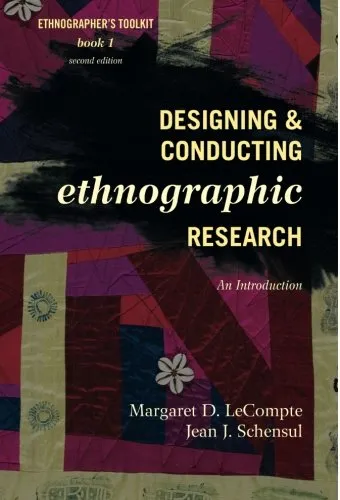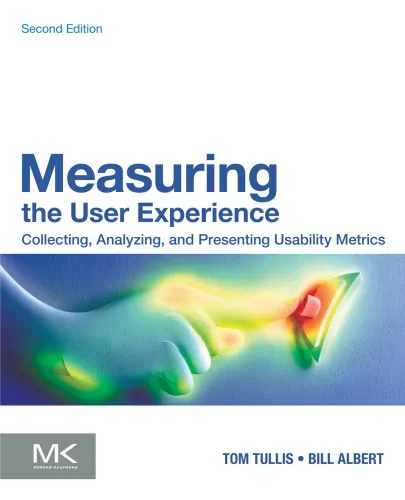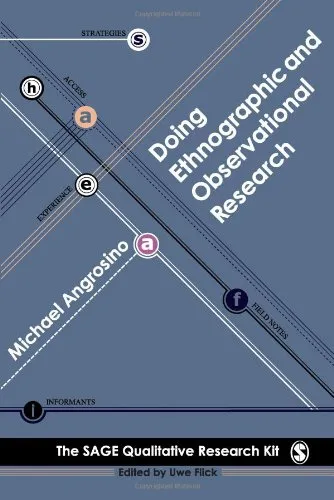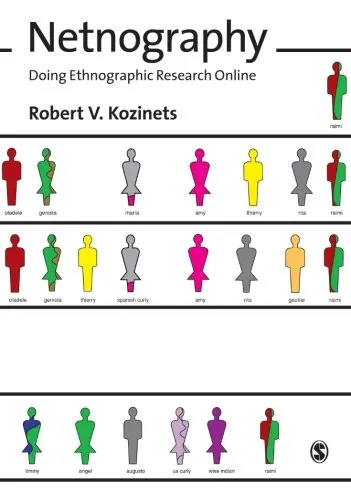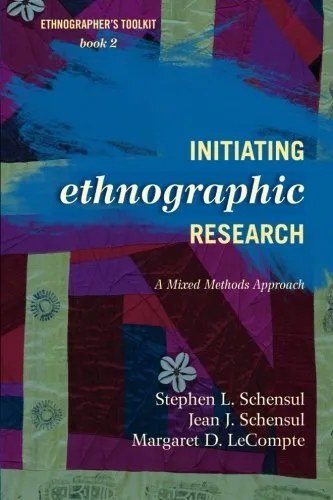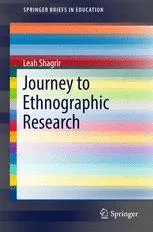Designing & conducting ethnographic research : an introduction
4.5
Reviews from our users

You Can Ask your questions from this book's AI after Login
Each download or ask from book AI costs 2 points. To earn more free points, please visit the Points Guide Page and complete some valuable actions.Related Refrences:
Introduction
Welcome to the comprehensive and insightful world of ethnographic research, where 'Designing & Conducting Ethnographic Research: An Introduction' serves as both a beacon and a map for those venturing into the realms of cultural exploration and qualitative inquiry. Authored by Margaret D. LeCompte and Jean J. Schensul, this book provides an indispensable guide for social scientists, researchers, and students committed to understanding the intricacies of human societies through an ethnographic lens.
Summary of the Book
In 'Designing & Conducting Ethnographic Research', LeCompte and Schensul delve into the nuances of ethnography as a robust framework for conducting qualitative research. The book is structured to guide the reader through the essentials of designing and implementing ethnographic studies. Beginning with foundational theory, it gradually transitions into practical application, covering everything from formulating research questions to selecting appropriate methods and techniques for data collection.
The authors emphasize the critical skill of observation, detailing how to immerse oneself in a cultural context to gather authentic insights. They guide readers in crafting research designs that are adaptable and relevant, taking into account the complexities of field environments. The text also includes discussions on ethical considerations, data analysis methodologies, and strategies for ensuring validity and reliability in ethnographic research.
One of the key strengths of this book is its reliance on real-world examples and case studies, which breathe life into theoretical concepts and methodologies. Thus, readers are not only introduced to the core principles of ethnography but are also shown how these principles manifest in practice across different research settings and cultures.
Key Takeaways
- Understanding Ethnography: Gain a comprehensive understanding of ethnography as a qualitative research methodology that seeks to explore cultural phenomena from an insider's perspective.
- Research Design: Learn how to formulate effective research questions and construct robust research designs that are responsive to changing field contexts.
- Data Collection Skills: Develop observation and interviewing skills crucial for collecting rich, detailed data in a naturalistic setting.
- Ethical Engagement: Navigate the ethical challenges inherent in fieldwork, with guidance on informed consent and respectful engagement with research participants.
- Data Analysis Techniques: Acquire strategies for interpreting complex data and communicating findings in a manner that accurately represents the subject community.
Famous Quotes from the Book
“Ethnography is not merely about observing culture; it’s about understanding the intricate web of relationships and meanings that define human experience.”
“To conduct effective ethnographic research, one must not only be a careful observer but also an empathetic listener and an ethical participant.”
Why This Book Matters
'Designing & Conducting Ethnographic Research' stands out as a vital resource for anyone interested in the field of qualitative research. In an increasingly interconnected world, understanding the cultural dimensions of human communities is crucial for addressing global challenges that range from social inequality to cultural misunderstandings. The authors bring decades of experience to the table, offering insights that are both academically rigorous and practically applicable.
Moreover, the book's emphasis on the ethical dimensions of research underscores its relevance in contemporary academic and applied research. By fostering a deeper understanding of ethnographic methods, this book empowers researchers to produce work that not only informs but also enriches the communities they study. As such, it is a critical addition to any social scientist's library, offering guidance that will resonate for years to come.
Embark on a journey through the landscapes of human experience with LeCompte and Schensul's comprehensive guide. Whether you're a novice researcher or an experienced practitioner, this text offers valuable insights that equip you to engage more thoughtfully and effectively with the world's diverse cultures.
Free Direct Download
You Can Download this book after Login
Accessing books through legal platforms and public libraries not only supports the rights of authors and publishers but also contributes to the sustainability of reading culture. Before downloading, please take a moment to consider these options.
Find this book on other platforms:
WorldCat helps you find books in libraries worldwide.
See ratings, reviews, and discussions on Goodreads.
Find and buy rare or used books on AbeBooks.
1326
بازدید4.5
امتیاز0
نظر98%
رضایتReviews:
4.5
Based on 0 users review
Questions & Answers
Ask questions about this book or help others by answering
No questions yet. Be the first to ask!
